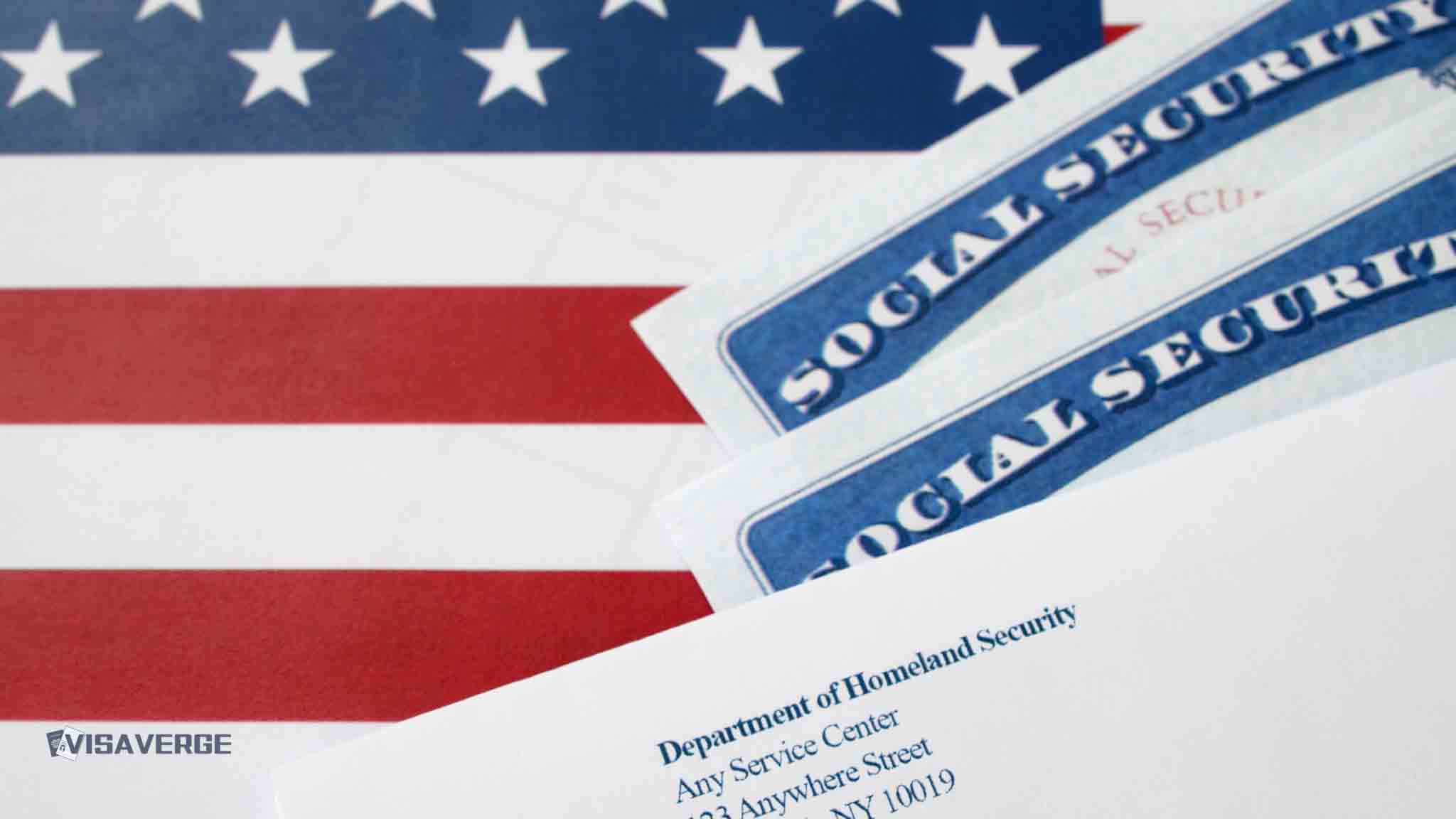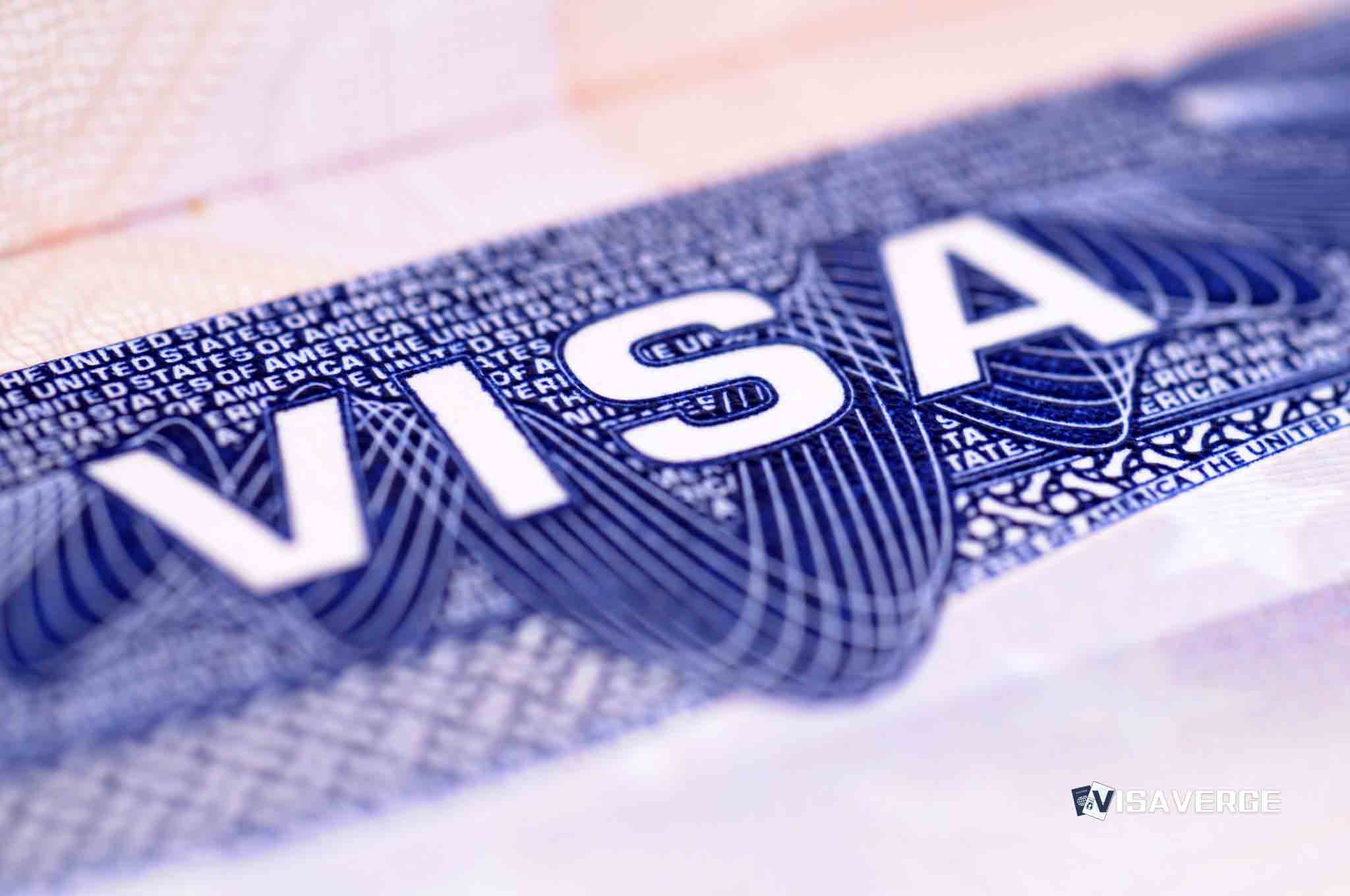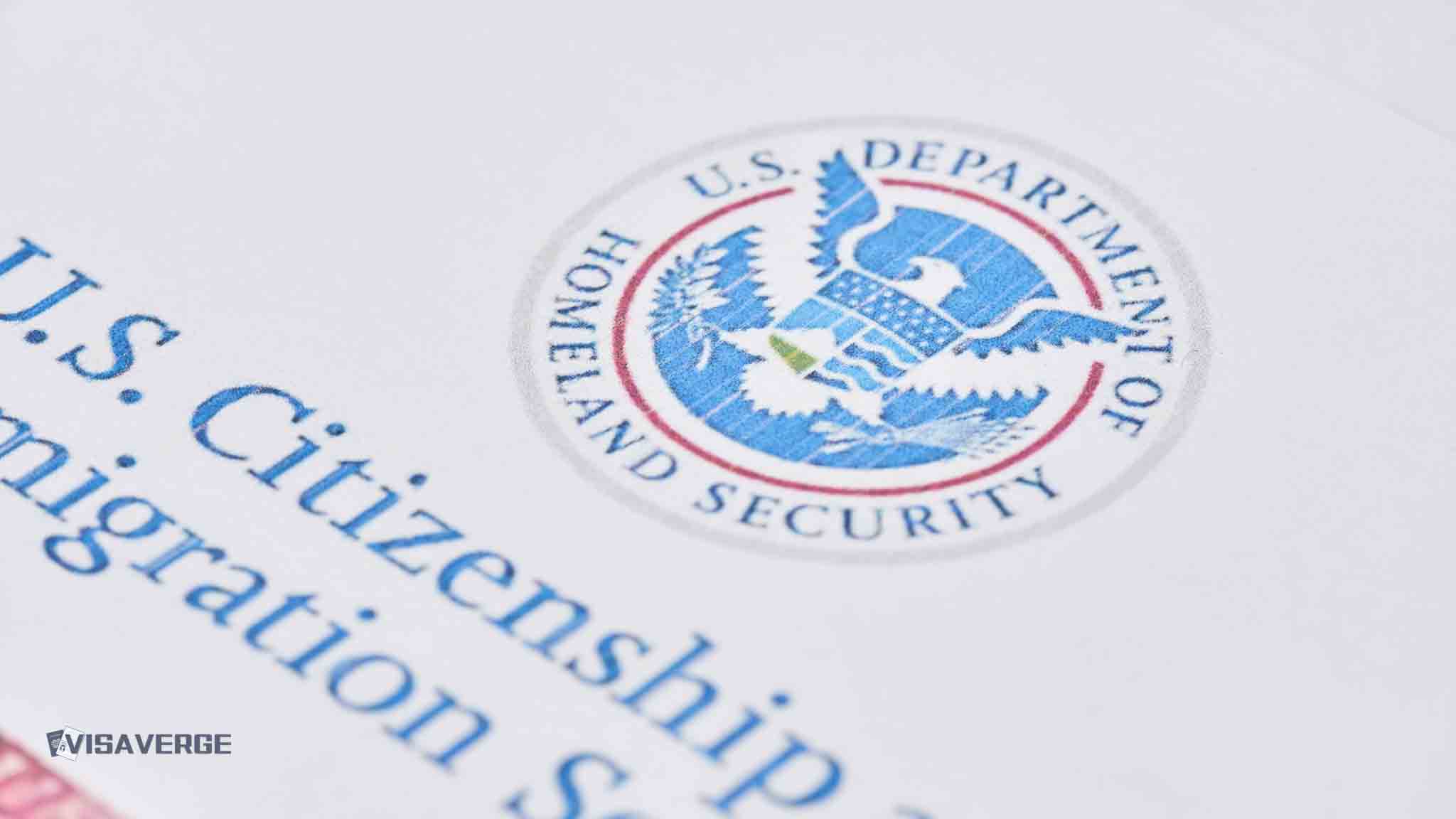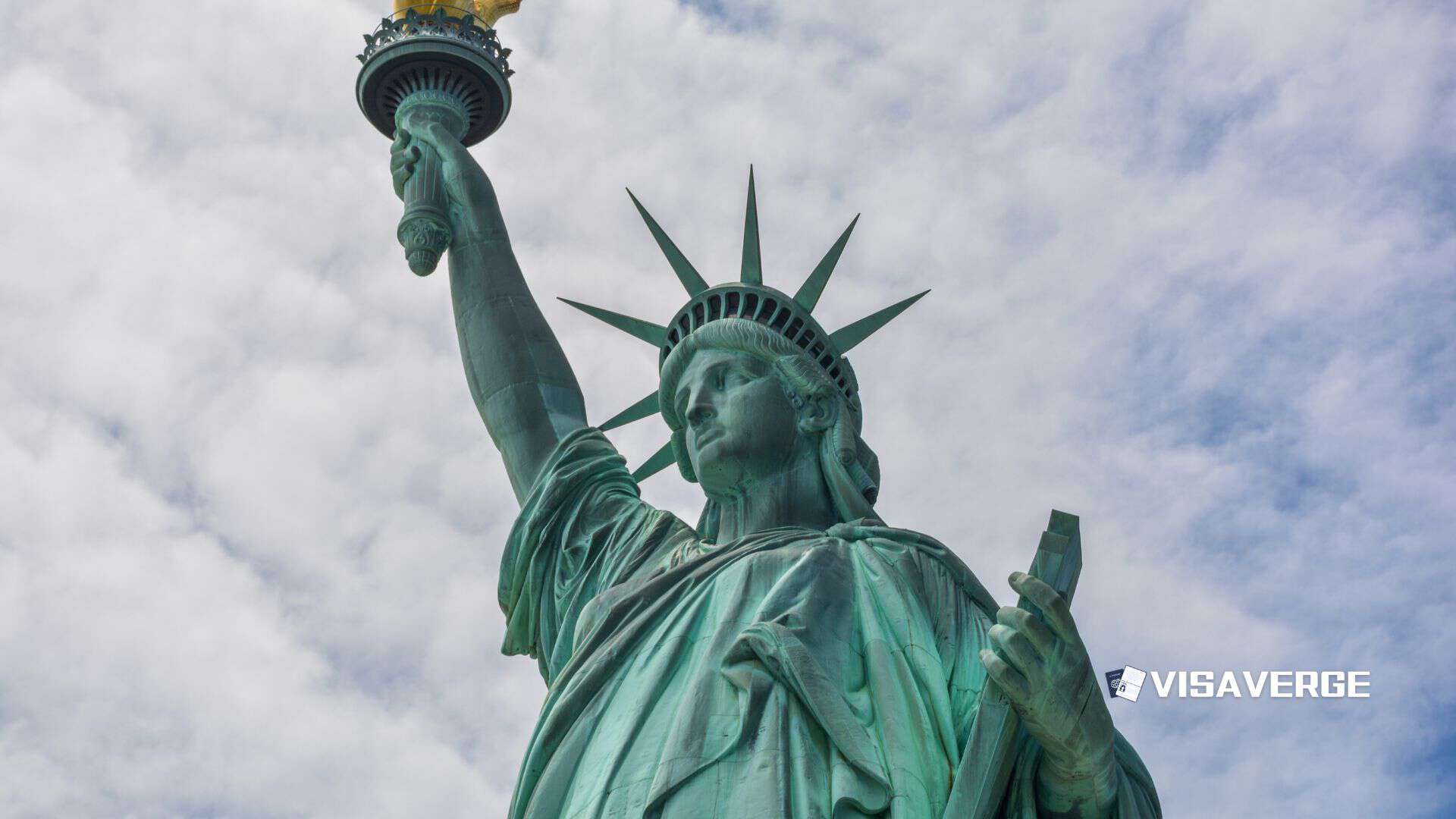Key Takeaways
• Trump proposes a $5,000 baby bonus for new mothers to address America’s declining birth rate.
• Plan includes increased child tax credits, IVF subsidies, and special Fulbright quotas for parents and married couples.
• Experts argue financial incentives alone are unlikely to significantly boost the U.S. birth rate or solve underlying issues.
With the United States 🇺🇸 facing a worrying drop in the number of children being born, the Trump administration is thinking about a bold new step: giving a $5,000 “baby bonus” to mothers after childbirth. The idea is meant to help increase the country’s birth rate, which is getting lower every year. This proposal is just one part of a bigger plan to encourage marriage, support families, and push for a new wave of babies born in America, as reported by VisaVerge.com.
The $5,000 Baby Bonus: What’s Being Proposed

At the center of the Trump administration’s plan is a one-time cash payment of $5,000 given to every new mother after she gives birth. This payment would be meant to help families with the costs that come right after a new baby arrives.
But the $5,000 baby bonus is not the only idea being talked about. Other parts of the plan include:
- Making 30% of top Fulbright scholarships available only to people who are married or who already have children.
- Increasing the child tax credit so parents can get more money back at tax time.
- Starting special honors like a “National Medal of Motherhood” for women who have six or more children.
- Giving more money to help women who need help getting pregnant, such as with in vitro fertilization (IVF).
- Funding education programs in schools to teach girls about how their bodies work, especially lessons on things like the menstrual cycle and fertility.
All these ideas show a clear effort to respond to a big problem: the United States 🇺🇸 is not having enough babies to replace the old generation. Right now, American women have an average of 1.62 children each. Experts say the number needs to be at least 2.1 to keep the country’s population stable without outside help.
Why Is the Trump Administration Talking About a Baby Bonus?
There are two main reasons for this effort.
First, there’s the economic reason. When not enough babies are born, it means fewer people will later join the workforce to work and pay taxes. This could make it harder to care for retired people and keep the economy strong. Over time, a low birth rate might mean a smaller, older country with fewer people working and more depending on government help.
Second, there’s a political and cultural reason. Many supporters of the Trump administration believe that more marriage, bigger families, and stronger “traditional values” will help the country overall. These ideas have strong backers. Vice President JD Vance and public figures like Elon Musk have both supported making it easier for couples to have children. President Trump has even called for a “new baby boom” and said the country should work to help families grow.
Where Things Stand: Just a Proposal for Now
Right now, these ideas have only been talked about in meetings between White House staff and policy experts. There is no law yet, and the Trump administration has not announced official rules or a date when any policy would begin.
There is still a lot of discussion about which parts of the plan might actually move forward. Not everyone in conservative groups agrees on all the ideas. For example, even within the Trump administration’s supporters, there are disagreements about spending government money on IVF, which helps couples have babies. IVF is seen by some as a good way to help families, but others don’t like the idea for personal or moral reasons.
Before any proposal like the $5,000 baby bonus can become law, it would likely need to pass through Congress—or be set by executive order. But as of now, these changes are still being debated.
Criticism: Can a $5,000 Baby Bonus Really Make a Difference?
While the idea of getting money to help with a new baby sounds helpful, many experts say the baby bonus probably won’t fix the problem.
What Experts Say About Financial Incentives and Birth Rate
Studies from around the world show that giving parents a cash bonus for having a baby often does not make families decide to have more children in the long run. Sometimes, parents may simply choose to have a baby a little earlier than they would have, but it does not change the total number of children a family has.
One key criticism is that having a baby in the United States 🇺🇸 is expensive—about $5,000 does not cover even the costs of the birth in many places, let alone expenses for raising a child over many years. The costs of diapers, food, housing, child care, doctor visits, and education all add up. Many families worry about these big expenses, and a one-time $5,000 bonus may feel small in comparison.
A columnist from Reason Magazine put it this way: “While I’m sure mothers may appreciate a check after childbirth… The idea that $5,000 would sway families to have children they otherwise wouldn’t have is absurd…” For many families, the bigger issue is having secure jobs, good health insurance, and affordable child care.
Bigger Issues: Beyond Just a Cash Bonus
Some people think giving a $5,000 baby bonus is only a small fix. They say real change would mean making health care, child care, and housing more affordable. Without these bigger changes, it’s hard for many young people and couples to start or grow families.
Critics also point out that the Trump administration’s plan seems to focus most on married couples who fit a traditional family pattern, such as a mother and father raising children together. Single parents, LGBTQ+ families, and those who do not fit this model may feel left out by things like the Fulbright scholarship limit and other rewards for large, traditional families.
There are also concerns about how the new push for more births matches with recent rollbacks on abortion rights in many states. Some worry that encouraging births without giving more support for women’s health and child care could put mothers and children at risk.
Some of the Other Features Being Discussed
Here is a quick look at other ideas from the Trump administration that are also being debated:
- Fulbright Scholarships for Families: Setting aside 30% of these famous scholarships just for married people or parents could help those families, but might hurt single people or people in non-traditional families who are also trying to study or work abroad.
- IVF Subsidies: Making it cheaper for couples to use medical help to have children would help many, but not everyone in the Trump administration agrees about paying for this with government money.
-
National Medal of Motherhood: Giving a special award to mothers who have big families sounds encouraging to some, but others see it as old-fashioned or unfair to mothers who have fewer children.
-
Menstrual and Fertility Education: Teaching young women about how their bodies work could help some plan families better, but the scope of this program is seen as limited and not likely to have a big effect on the birth rate overall.
For more official information about family and child policy proposals under discussion, you can read updates on the U.S. Department of Health & Human Services website.
Different Views: Supporters and Critics Speak Out
Supporters of the Trump administration’s $5,000 baby bonus argue that even a small payment can help new parents and encourage a more family-friendly culture. They believe that making marriage and child-raising more appealing—with things like medals, scholarships, and extra money—could start to change how people think about having kids.
On the other hand, many researchers say that while these kinds of incentives can help in the short term, they do little to change the big financial and personal reasons why people are waiting longer to have kids or having fewer children overall.
Some positive feelings do exist among people who would like to see more help for infertility or value public recognition for motherhood. Still, almost all experts agree that one cash payment is not enough to solve big, complicated issues like the high costs of child care or lack of paid family leave.
Looking at the Data: Why the Birth Rate Matters
Why are people so worried about the birth rate in the United States 🇺🇸? The answer is simple: if fewer babies are born, there will be fewer workers and taxpayers in the future. This makes it harder to support older generations who may need government help like Social Security and Medicare.
The goal with all these plans, from the $5,000 baby bonus to changes in scholarships and tax credits, is to raise the birth rate above its current low point of 1.62 babies per woman. But remember, the number needed for a stable population is at least 2.1. The country is still a long way from reaching that.
What Needs to Happen for Real Change?
People who work in policy and family research say that deeper changes are needed. What kinds of things might really help families have more children, or decide to have children sooner? Here are some of the main suggestions:
- Lowering the cost of child care and making it easier to find.
- Offering paid leave from work for new parents.
- Making health care during pregnancy and childbirth cheaper and safer.
- Making housing more affordable for young families.
- Helping parents balance work and family life with flexible schedules.
These steps, combined with cash bonuses or extra tax credits, could make starting or growing a family less stressful for Americans. While a $5,000 bonus could help for a little while, long-term support would likely be needed to make a real, lasting change in the country’s birth rate.
Table: Key Features and Main Concerns
Below is a summary of the main ideas discussed, along with the biggest worries people have about them.
| Feature | What Is It? | Concerns People Have |
|---|---|---|
| $5,000 Baby Bonus | One-time payment after each baby is born | Too little money; not enough change |
| Fulbright Quota | 30% set aside for married/parent applicants | Not fair to singles/other families |
| IVF Subsidies | Help paying for infertility treatments | Divided opinions among conservatives |
| National Motherhood Medal | Award for mothers of 6+ kids | Old-fashioned; not for everyone |
| Menstrual Ed. | Lessons on fertility in schools | Not widespread enough to help much |
Final Thoughts: A Step, But Not a Solution
The Trump administration’s talk of a $5,000 baby bonus shows more attention being paid to America’s lower birth rate and the challenges that come with it. Without real changes to the cost of housing, child care, and health care, the bonus is unlikely to create a big baby boom.
Instead, the bonus might help some families with short-term needs but will not likely solve the bigger, longer-lasting challenges that keep Americans from having more children.
If you are interested in more updates or want to learn what might happen next, you can watch for further developments at VisaVerge.com and links to official government announcements. For those looking for support or more information, following government websites is also a good idea.
In summary, the $5,000 baby bonus is an interesting idea and could offer some help, but experts agree the United States 🇺🇸 will need bigger and more far-reaching changes if it wants to see families grow and the birth rate rise in a meaningful way.
Learn Today
Fulbright Scholarships → Prestigious U.S. government-funded programs granting opportunities for research, study, and teaching abroad to American citizens.
Child Tax Credit → A tax benefit that reduces the amount of tax paid by parents for each qualifying child under their care.
In Vitro Fertilization (IVF) → A medical procedure where eggs are fertilized outside the body and then implanted, helping people facing fertility issues.
Pronatalist Policies → Government strategies aimed at increasing the birth rate by encouraging citizens to have more children.
Medal of Motherhood → A proposed national honor awarded to women who have six or more children, recognizing large families.
This Article in a Nutshell
Facing a historic drop in the U.S. birth rate, the Trump administration proposes a $5,000 baby bonus for new mothers. While aimed at encouraging larger families, experts doubt that financial incentives alone can counteract economic pressures, high child-rearing costs, and broader cultural shifts that influence Americans’ decisions about parenthood.
— By VisaVerge.com
Read more:
• Fluctuating Workweek Method: Overtime and Bonus Calculation Guide
• How Bonuses Affect Overtime Pay Calculation
• Exempt Employees: Bonuses and Overtime Rules
• H1B Visa Taxes on Performance Bonuses: What You Need to Know
• H1B Visa Bonus Taxation: Understanding Your Tax Liability from a Foreign Employer













